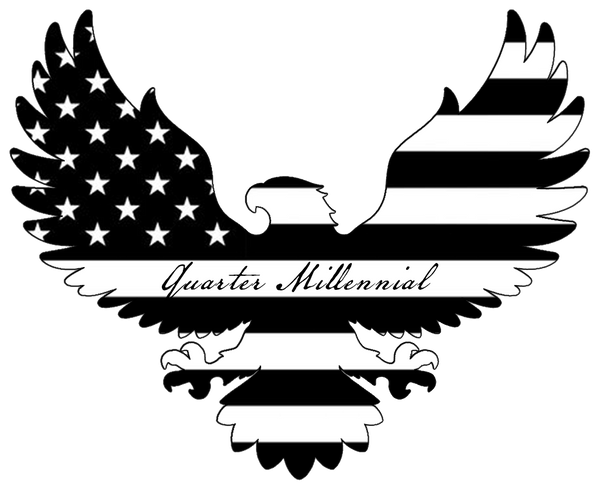
Cradle of Knowledge: 249 Days Out – Harvard's Legacy of Enlightenment
Share
October 28, 2025 – Day 249 of Our Countdown to July 4, 2026
Yesterday, we charged into our 250-day journey with the indomitable spirit of Theodore Roosevelt, the Bull Moose president who embodied America's bold pursuit of progress and preservation. Today, as we mark Day 249, we turn our gaze to the intellectual forge that shaped the minds behind our nation's founding ideals: Harvard University, the oldest institution of higher learning in America, founded on this day in 1636 in Cambridge, Massachusetts.
In the Quarter Millennial's 250-Day Salute to American Greatness, we're illuminating the threads of history that wove the fabric of our republic. From warriors and stewards to scholars and statesmen, each day's tribute reminds us how the Declaration's promise of enlightened self-rule continues to inspire. Harvard's story is a cornerstone – a testament to the power of knowledge in igniting revolution and sustaining liberty.
The Birth of American Learning
Envision the raw edges of the New World: Puritan settlers in the Massachusetts Bay Colony, barely a decade into their exodus from England, recognized that a thriving society demanded educated leaders. On October 28, 1636, the Great and General Court of the Massachusetts Bay Colony voted to establish "New College" in the sleepy village of New Towne (soon renamed Cambridge). The goal? To train a learned clergy to replace those aging ministers who had crossed the Atlantic, ensuring the colony's spiritual and civic backbone remained strong.
John Harvard, a young clergyman who arrived in 1637, became its first benefactor. Upon his untimely death later that year, he bequeathed half his estate and his library of over 400 books, prompting the college to bear his name in 1639. From these humble beginnings – a single building and a handful of students – sprang an institution that would redefine education, not just in America, but worldwide. Harvard wasn't built for elitism; it was forged for survival and enlightenment, echoing the colonists' fierce commitment to self-determination that would culminate in 1776.
Harvard's Crucible in the Fires of Revolution
By the time the shots at Lexington and Concord rang out in 1775, Harvard stood as a 139-year-old beacon, its halls echoing with the debates that birthed independence. The university's influence on the American Revolution was profound and multifaceted:
- Forge of Founding Fathers: Seven Harvard graduates affixed their signatures to the Declaration of Independence, more than from any other institution. John Adams (Class of 1755), the future second president and chief architect of the document, honed his razor-sharp legal mind here. John Hancock (1754), the bold president of the Continental Congress, lent his famous flourish. Others included Elbridge Gerry (1762), Robert Treat Paine (1745), William Whipple (1752), William Williams (1751), and Samuel Adams (though he attended without graduating, his brother John did). These men didn't just study history; they made it, channeling Harvard's emphasis on rhetoric, philosophy, and ethics into the revolutionary cause.
- Sanctuary and Strategy Hub: As war engulfed the colonies, Harvard's campus became a vital asset. In 1775, with British forces advancing, students were dismissed early, and the grounds were repurposed as a barracks and hospital for the Continental Army. General George Washington himself headquartered there briefly in July 1775, plotting the Siege of Boston from what is now Massachusetts Hall. This transformation symbolized higher learning's alliance with liberty – scholars yielding to soldiers in defense of the very principles they taught.
- Guardian of the Sacred Text: Today, Harvard's Houghton Library safeguards one of the rare surviving original Dunlap broadsides, the first printed edition of the Declaration rushed out by John Dunlap on July 5, 1776. This fragile artifact, read aloud to troops and disseminated across the colonies, carries the ink of revolution into our era – a direct link from 1636's founding vision to 1776's defiant proclamation.
Harvard's early curriculum, steeped in classical texts from Aristotle to Locke, instilled the ideas of natural rights and governance by consent that fueled the Founders' arguments. It was no ivory tower; it was a launchpad for patriots who turned theory into action, proving that an educated populace is the bedrock of free societies.
Why Harvard Lights Our Path to 250?
On Day 249, just shy of our quarter-millennial milestone, Harvard reminds us that the Declaration wasn't penned in isolation – it emerged from minds sharpened by deliberate pursuit of wisdom. In an age when knowledge was scarce and perilous to seek, this institution dared to cultivate it, nurturing the intellectual revolutionaries who declared, "We hold these truths to be self-evident." As we countdown, Harvard's legacy urges us: Educate to emancipate. In today's world of rapid information and division, recommitting to critical thought honors the enlightenment that birthed our nation.
Tomorrow, on Day 248 (October 29th), we'll explore another pivotal moment in the march toward independence. Stay with us, fellow history seekers – the story unfolds one enlightened day at a time.
In pursuit of truth and liberty,
The Quarter Millennial Team
